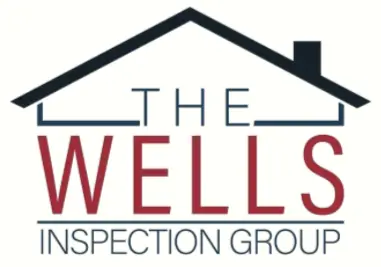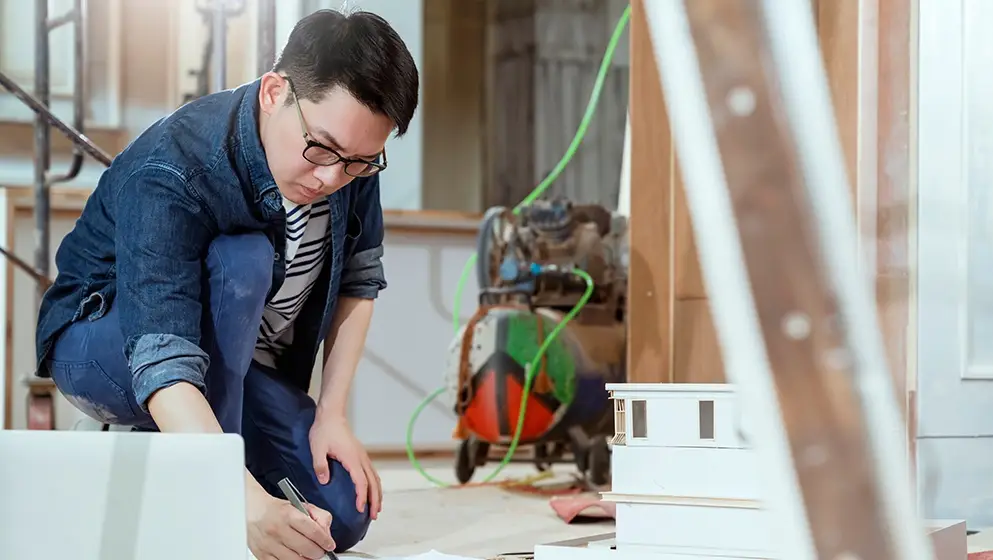The process of buying a home is a significant financial decision that involves careful consideration and evaluation. One crucial aspect of this process is the home inspection, which provides valuable information about the condition of the property. However, some buyers may choose to skip this important step, either due to time constraints, overconfidence in their own judgment, or to save money. This article examines the cost of skipping a home inspection as a buyer. By identifying hidden issues, a home inspection can prevent unexpected expenses and potential risks associated with structural, electrical, or plumbing problems. Furthermore, it protects the buyer’s investment by allowing them to negotiate repairs or a lower price based on the inspection findings. Additionally, a home inspection provides peace of mind, as buyers can be confident that they are making an informed decision based on a thorough assessment of the property. Lastly, skipping a home inspection can lead to legal and financial troubles, as buyers may be held responsible for any undisclosed issues or defects after the purchase.
Identify Hidden Issues
Identifying hidden issues in a property becomes challenging when a home inspection is skipped by the buyer. Home inspections serve as a crucial step in the home buying process, providing buyers with an opportunity to identify major problems and uncover potential structural issues. These inspections are typically conducted by professional inspectors who thoroughly examine the property, assessing its overall condition and identifying any underlying issues that may not be immediately apparent. By skipping this critical step, buyers run the risk of purchasing a property with hidden problems that could lead to costly repairs and significant financial burdens.
During a home inspection, inspectors carefully examine various aspects of the property, including its foundation, roof, plumbing, electrical systems, and overall structural integrity. They search for signs of water damage, mold, pest infestations, and other issues that may compromise the home’s livability and safety. Additionally, inspectors may use specialized tools and equipment to identify hidden problems, such as thermal imaging cameras to detect leaks or moisture buildup behind walls.
By not investing in a home inspection, buyers may unknowingly purchase a property with foundational or structural issues that can be expensive to repair. For example, a hidden water leak could lead to mold growth and rotting wood, requiring extensive repairs and remediation. Similarly, a hidden structural issue, such as a cracked foundation, could compromise the stability of the entire property, necessitating costly repairs to ensure its safety and habitability.
In conclusion, skipping a home inspection as a buyer can have severe consequences. It hampers the ability to identify major problems and uncover hidden issues that may exist in a property. By forgoing this crucial step, buyers risk investing in a property that requires costly repairs and compromises their investment. Therefore, it is essential to prioritize a comprehensive home inspection to protect your investment and ensure peace of mind in your purchase.
Protect Your Investment
Minimizing potential risks is crucial for safeguarding one’s investment in the real estate market. When it comes to purchasing a property, conducting a thorough home inspection is essential to protect your investment. By skipping this step, buyers expose themselves to various long-term maintenance issues that may go unnoticed at the time of purchase.
A home inspection serves as a comprehensive evaluation of a property’s condition, identifying hidden issues that may not be apparent to the untrained eye. These hidden issues can range from structural problems to electrical or plumbing issues, all of which can be costly to repair. By forgoing a home inspection, buyers risk purchasing a property with significant underlying problems that may require extensive and expensive repairs in the future.
Furthermore, a home inspection provides an opportunity for buyers to negotiate the price based on any issues that are identified. If the inspection reveals significant repairs or maintenance that needs to be addressed, buyers can use this information to negotiate a lower purchase price or request that the seller makes the necessary repairs before the deal is finalized. By skipping the inspection, buyers lose this crucial bargaining power and may end up overpaying for a property that requires substantial investment.
In conclusion, neglecting a home inspection exposes buyers to potential long-term maintenance issues and eliminates the opportunity to negotiate the price based on any identified problems. By conducting a thorough inspection, buyers not only protect their investment but also gain peace of mind in knowing the true condition of the property they are purchasing.
Gain Peace of Mind
Achieving a sense of tranquility and confidence in the property’s condition can be attained through a thorough evaluation process. When considering the purchase of a home, conducting a comprehensive home inspection can provide buyers with peace of mind. By identifying any potential issues or deficiencies, a home inspection can potentially save buyers a significant amount of money in the long run. The inspection report will outline any areas of concern, such as structural problems, plumbing or electrical issues, or the presence of mold or pests. Armed with this knowledge, buyers can negotiate the price of the property to account for any necessary repairs or maintenance that may arise in the future.
A thorough inspection allows buyers to make informed decisions about the property they are considering purchasing. It provides an objective assessment of the condition of the home, giving buyers a clear understanding of the potential risks and costs associated with the property. This information empowers buyers to negotiate a fair price that reflects the true value of the property, taking into account any repairs or upgrades that may be required.
By investing in a home inspection, buyers can avoid unpleasant surprises and financial burdens down the line. It allows them to address any issues before finalizing the purchase, potentially saving them from costly repairs or renovations in the future. In addition, the knowledge gained from a home inspection enables buyers to make informed decisions about whether or not to proceed with the purchase, ensuring that they are fully aware of the property’s condition and potential costs. Transitioning into the subsequent section about “making informed decisions,” it is essential for buyers to gather as much information as possible before committing to a property.
Make Informed Decisions
Gaining a comprehensive understanding of the property’s condition is crucial for making well-informed decisions when considering a potential purchase. By conducting a thorough home inspection, buyers can avoid surprises and save money in the long run. A home inspection provides a detailed assessment of the property’s structural integrity, electrical systems, plumbing, and overall safety. It helps buyers identify any hidden issues or potential problems that may not be visible during a casual walkthrough.
During a home inspection, a qualified inspector thoroughly examines the property, documenting any observed deficiencies and providing an objective evaluation. This information allows buyers to make informed decisions regarding the property’s value and potential maintenance or repair costs. By learning about any existing issues, buyers can negotiate with sellers to address these concerns or even reconsider their purchase if the problems are significant.
Avoiding surprises is one of the key benefits of a home inspection. By uncovering hidden defects, buyers can avoid unexpected expenses that may arise after the purchase. For example, a home inspection may reveal issues such as mold, foundation problems, or outdated electrical systems. Knowing about these issues in advance can save buyers from costly repairs or renovations in the future.
In addition to avoiding surprises, a home inspection can also help buyers save money. By identifying potential problems, buyers can estimate the cost of necessary repairs and factor them into their budget or negotiate a lower purchase price. This proactive approach allows buyers to make financially sound decisions and avoid overpaying for a property that requires significant investments.
By gaining a comprehensive understanding of the property’s condition through a home inspection, buyers can make well-informed decisions that mitigate risks and avoid potential legal and financial troubles. Transitioning into the next section about ‘avoid legal and financial troubles,’ it is essential to consider the potential consequences of skipping a home inspection.
Avoid Legal and Financial Troubles
Avoiding a thorough evaluation of the property’s condition can lead to potential legal and financial complications in the future. By skipping a home inspection, buyers may unknowingly inherit costly repairs and encounter unexpected problems down the line. It is essential for buyers to understand the importance of conducting a comprehensive inspection to avoid expensive repairs and prevent future headaches.
A home inspection provides buyers with a detailed assessment of the property’s condition, identifying any existing or potential issues that may require attention. Inspectors thoroughly examine the structural integrity, electrical systems, plumbing, and other vital components of the house. This evaluation helps buyers make informed decisions and negotiate repairs or price reductions with the seller, ensuring that they are purchasing a property that meets their expectations.
Skipping a home inspection may save buyers some upfront costs, but it can expose them to significant financial risks in the long run. Undetected problems, such as faulty electrical wiring, plumbing leaks, or structural deficiencies, can lead to costly repairs or even compromise the safety of the occupants. In some cases, these repairs may require extensive renovations or replacements, resulting in substantial financial burdens.
Furthermore, avoiding a home inspection may have legal implications. Sellers are obligated to disclose any known defects or issues about the property. However, without a proper inspection, buyers may be unaware of these defects, leaving them vulnerable to potential lawsuits or disputes with the seller after the purchase. By conducting a thorough inspection, buyers can ensure that they have a clear understanding of the property’s condition and address any legal concerns before finalizing the transaction.
In conclusion, skipping a home inspection can have severe consequences for buyers. By conducting a comprehensive evaluation, buyers can avoid expensive repairs and prevent future headaches. Investing in a professional inspection provides buyers with the necessary information to make informed decisions, negotiate repairs, and protect themselves from potential legal and financial troubles.
Conclusion
Skipping a home inspection as a buyer can have serious consequences. By forgoing this crucial step, you risk missing hidden issues that could result in costly repairs down the line. Additionally, failing to conduct a home inspection can leave you vulnerable to legal and financial troubles. A thorough inspection allows you to protect your investment, gain peace of mind, and make informed decisions. In conclusion, it is in your best interest to always prioritize a home inspection to ensure a smooth and secure home buying process.




